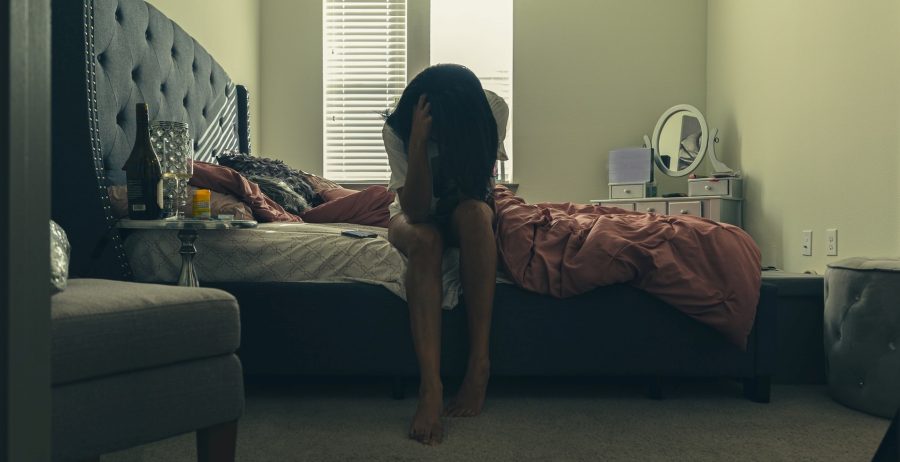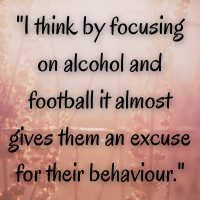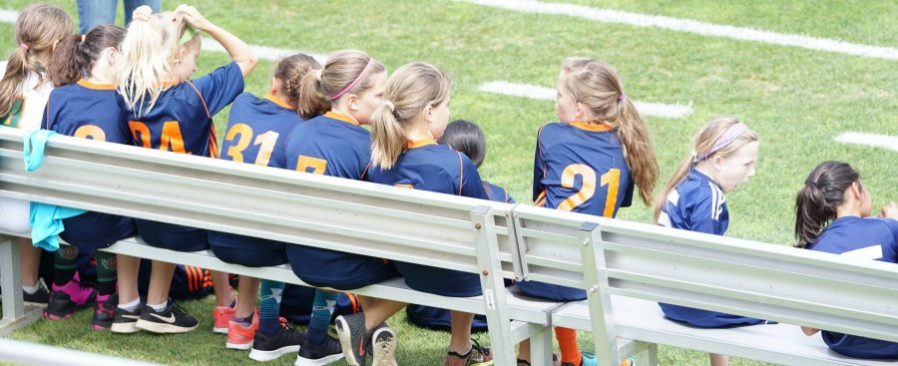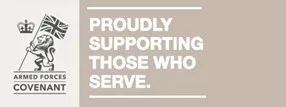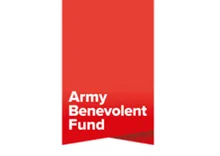Aurora’s helpline – 6pm to 9am Monday to Friday and 24hrs over the weekend 02394 216 816
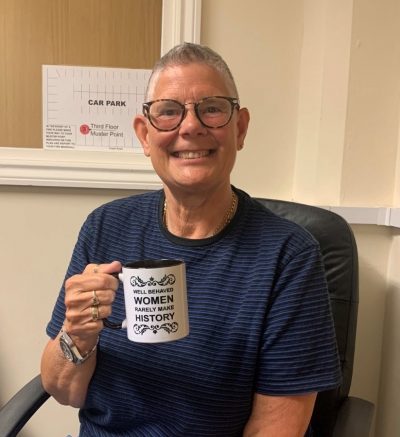
I have been lucky enough to know Linda since 2004 when we worked together on a health based domestic abuse project in St Mary’s Hospital maternity unit. There are some women you meet in this movement that have a lifelong effect on you, Linda is one of those women for me and I was over the moon when we started working together again at Aurora a few years ago.
Linda retired in June 2021, after working in the male violence against women movement for over thirty-seven years, so I took the opportunity to interview her, to ensure her legacy of supporting women is acknowledged and recognised.
Here is that interview:
Shonagh – How did you start in the movement?
Linda – It started by discovering myself as an adult, finding the things that I felt were hugely unfair that I noticed just by watching TV and then through a few friends of mine who were in a women’s group.
At that time, I didn’t know what a women’s group was, and they were feminists and I didn’t even know what that was, I hadn’t even heard the word… so they told me all about Spare Rib the magazine and women’s refuges and I was amazed to find there was a whole world of women who felt the same as me.
Shonagh – What was the link locally between those women’s groups and the lesbian community?
Linda – As I met women through the community I was able to recognise other lesbian women in the same environment… not all the women were lesbians, although I made the mistake of often thinking they were… I would be chatting to someone and be hoping beyond all hope that they were gay, but unfortunately for me they weren’t, they were just feminists!
(Shonagh/Linda – howl with laughter)
Linda – It was heavily weighted with a lot of feminist women though, and I really felt at home when I was with them. When I joined the women’s group, I rushed to join them, I needed to be with them all. I remember going on my first Reclaim the Night March and being so excited about being surrounded by women shouting and everyone was wearing clothes they felt comfortable in and it seems nothing now, but it was so important. Even though we were being shouted at and getting homophobic abuse it was great to be with other women when that was happening because we all shouted back together. My experience before that was that I was always shouted at and sworn in the street and I couldn’t say anything back because I was frightened and on my own. To be among strong women, whether they were gay, heterosexual, or not quite decided, it was just really empowering.
Part of that was listening to what those women did and they would talk about it, either women working in refuges or they would be working in an environment where they were one or two women who were trying to make a difference where they worked, and I just felt so empowered, the energy was incredible.
Shonagh – How old were you then?
Linda – Probably my very early twenties, I met some feminists in my late teens but really embraced it all in my early twenties.
Shonagh – So tell me about your first job then?
Linda – It was volunteering for the Portsmouth refuge, in an old building that was given to these radical feminists who were part of Women’s Aid, which I was really proud of. We didn’t have a boss, we had a women’s collective; everything was a women’s collective and that was great as we all had a voice. When women came to us, they had a voice. We didn’t know the rules and we didn’t know what you were “supposed to do” but we knew that we could offer a safe space for a woman and her children. We had lots of debates with women who came through the house and women who worked in whatever capacity in the house about women’s rights, about what women can and should expect…

Shonagh – So there was a lot of consciousness raising?
Linda – Yes absolutely, one of the fun things we used to do was if we saw heterosexuals kiss on the TV we used to all say “YUK” and then all laugh because we were highlighting how ridiculous the norm was compared to lesbian women. We used to watch the TV with the women and chat to them and say “can you believe she is having to do that; she’s been told by a man to do that…” So even watching TV together, everything was a platform for another debate to raise the issues and show women they didn’t have to be in those situations and accept it.
It took so much strength back then for women. I remember women were always arriving at the door with bin bags, they had nothing, and we felt this represented the idea that their lives were “rubbish” and this was a big burden on us, so we bought them all laundry bags because it was just nicer so when they moved on we told them, your life isn’t rubbish, it is laundry and you are taking it somewhere new to have a change.
Shonagh – That is so lovely, such a simple gesture. Tell me more about what you did?
Linda – Well after volunteering for a while a paid role came up and I could really get stuck in then as my career. I worked in refuge for a number of years and then I took a couple of years off to be a van driver because I was so burnt out. I didn’t know about vicarious trauma or how to protect myself, so I took two years out and drove around the country in a van and then went to work for the council, because it was a safe place to work and I could make a difference without being in an environment where I didn’t have to take the full weight of the burden. I became a housing officer and almost straight away I got given the title ‘domestic abuse support worker’. Basically the most important thing I thought I could do in the housing department was change the remit from Anti-social behaviour to domestic violence, because every phone call that came in, without exception, about neighbours and anti-social behaviour for the women on my patch it was all domestic abuse and they were being labelled as the nuisance. They were seen as causing problems and their kids would be referred to social care, but nobody ever asked them the question about whether they were experiencing domestic abuse.
Then I left housing and started working at the Early Intervention Project in the maternity Unit in Portsmouth (this was where Shonagh and Linda met) and one of the most fantastic things was being part of a training process. We trained midwives to ask the question of pregnant women about whether they were experiencing domestic abuse. I loved that because it was in the really early days of domestic abuse interventions with health professionals, it felt like we made a huge difference.
Shonagh – Tell me about your experience of the movement and the changes that have happened over the years…
Linda – I think the great thing about some of the changes was that when we started getting accredited as IDVA’s or ISVAs (Independent Domestic/Sexual Violence Advocates) for me at the time was I had received no adult or further education. I literally left school and went to work, so that was an opportunity for me to get recognised for all the work I had done, all the experience I had, because I didn’t come with a degree or any formal qualification. So, I was able to share stories again with a group and gain a qualification that showed I have the experience and it was recognised and structured. The negative to that was also that potentially there is a hierarchy then, in that I was an IDVA and had a qualification and somebody else would be doing the same job and wouldn’t have a qualification. I mean it is important in that the outside world saw our work as legitimate and worthy.
The reality is I did my qualification much later and so I didn’t learn much about supporting women that I hadn’t already learnt from the movement, but it was good get the qualification. It was also great to be able to share my experience in the classroom with those other women, some of them had no experience at all and were very young.
Shonagh – Tell me a bit about your work in social care that you did next in your career.
Linda – I was transferred to social care which was something I have always shied away from because I had seen so many women being blamed by social workers for the domestic abuse, and I saw so many women whose children were on ‘at risk’ registers because the women were just too fearful to ask for help. So, it was a big challenge for me, but I thought I could do it, so I became part of the Portsmouth Joint Action Team which was the precursor to the MASH (Multi-agency Safeguarding Hub). My role was to listen to women who were calling in for support and to make proactive contact with victims who social care had received reports about. Again, that meant I could be free with asking the question “why is this happening and how are the children being protected?” not, “you are not protecting your children”.
Shonagh – In your experience were victims largely protecting their children?
Linda – It is really rare, and I mean really rare that I have ever come across a woman that has not tried to protect her children. I have worked with women who have been completely unable to, for all sorts of reasons, but it is very rarely about choice. It is usually because the cards are stacked against them, everywhere they are turned they are blamed, if they raise their voice and say they are being subjected to domestic abuse someone will say “why aren’t you looking after yourself and your children?”. Or “why are you now out of work?” because work will be targeting them for their sick records or because they can’t work due to the PTSD or severe mental health they experience from the male violence and abuse in their lives. It always comes back to if you are going to ask the question you really need to listen to the answer. So many agencies are so set up to judge and when someone says the two words “domestic abuse” the assumption is that the victims need to change, it still isn’t “why is that perpetrator being dealt with?”, “how is that man still getting away with treating her and her children like this?” when she is judged she has no avenue for support and is so afraid to lift her head.
Shonagh – Tell me about your ISVA work and how victims are treated.
Linda – I think it is really interesting because I got into ISVA work a bit fearful, I wasn’t comfortable, it was new and I had always worked with the police in more challenging environments for example the Sexual Assault Referral Centre (SARC) when someone had recently been raped. I was worried that I wouldn’t have the right experience. But again, it was about listening and speaking up for them and helping women. It is such a huge privilege.
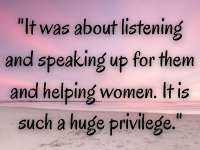
What saddens me the most is that I have heard so many stories over the years and literally just this morning, someone said to me thank god you were there because I didn’t feel connected to the police or that they were going to share the information with me and I felt left alone. Every day it is the same story from the Criminal Justice System, survivors are saying they reach out and tell the police and that the response is open and they want to hear it but we have to understand that what they want to hear is the evidence and victims and survivors feel that, and they know that. Then it is a referral off to someone like me and they go off and do the investigation, which of course is there job, but there aren’t enough ISVAs so what happens to all those victims that don’t get one.
The figures on justice for rape victims speak for themselves, don’t they? And that is just the victims that report, we both know so many who don’t report… we know that the survivors who do share their stories often feel that it falls on deaf ears and he just gets away with it.
But things have changed in approaches. The story I will never forget was when the SARC was just opened before that they were still using what they referred to as “the rape suite” (which is appalling language, but it was a long time ago now), and to examine someone they had to take them upstairs and I questioned this and was told this was where the examination room was. I had to explain to them that a woman is being taken upstairs in an empty house to be examined intimately after a rape and obviously at that time they hadn’t even thought about that.
I was so pleased when the SARC opened and it was a very clinical environment which is important but what was essential was that we made it less so in the communal meeting spaces or client rooms. We wanted to make sure it was warm and friendly. I haven’t been there for a long time, so I hope it is the same because that is so important for rape victims.
Shonagh – In terms of your 37-year history in the movement, why do you think the “by women, for women” approach is so important?
Linda – For me personally, the whole importance of having safe space and single sex spaces is that I know I am talking to someone who has my experience, it won’t be the same, but she was brought up with same kind of experiences of sex based oppression as me. Being with or around adult men as a young girl, she will know what that experience means, how it feels.
I mean it is even the simple stuff just being in meetings and seeing your colleague having a hot flash and offering a sympathetic look because you know what that is like. Or a woman whispering to you that she is on her period. We know as women and girls what walking into a room full of men feels like, it is grown within us and we are socialised to accept that if a man is in a room we defer, and I know even after all these years I have to fight hard not to do it. I have all the knowledge, I am a strong woman but I still know that if I walk into a room where a man is there I feel I have to smile at him even if I don’t feel like smiling, it is like forced out of me from my childhood as a girl…
So, when it comes to female victims, I think having that option to have a female only space is essential, and my fear is that it is getting diluted. Just as I explained about me smiling when I don’t want to, or deferring to a man, if a victim walks into a room and there is a man in that space then she is already having to defer to that person, she may smile too or behave differently… I know women do that, rape victims have said to me after they have spoken to male officers “I didn’t want to keep giggling but it was a man…” and that is the only way they know to deal with a very traumatic situation and all the responses that come with trauma when a man is the one asking them the questions or sharing their space. They know with women they can just cry, with me they know they can say whatever they want, not what they were taught to say or how they are meant to manage me, because I am another woman.
In a woman only space you don’t have to talk, you just have to be.
Shonagh – If you had one message for women starting out their careers in the movement what would you say?

Linda – I think the most valuable thing and I could get really emotional about this, the most valuable thing I have every learnt… and that is to listen, really listen. It is the smallest word but the biggest action. It is about recognising that the women who speak to you are strong in themselves, but they are going through trauma and they need you to listen. Strong women manage their lives they manage their families, they manage their jobs, don’t take that away from them, don’t put them in a box that says they are lesser, they are so strong and they get up every day and deal with their lives and if they want to talk to you, you should be so privileged and you should stop talking and listen!!
And I am a big talker so that was a really hard lesson for me…
Shonagh – God me too!
(Both laugh)
Shonagh – And what about a message for a woman who is reading this and is being abused.
Linda – I think it is more of the same message, we are here to listen and we will and I would say to them they are survivors, every woman throughout my whole career has survived and got up and managed that one day, a day at a time… because some women don’t survive the next day and I have tragically known them too…
(Both Linda and Shonagh are crying)
Shonagh – Linda thank you. Thank you for 37 years of such important work and everything you have done for women and girls…
ENDS
It is the women like Linda, quietly getting on with supporting women and working hard to end male violence that get the least public recognition. But they are in the movement every day and they deserve all our praise and respect, I know I feel incredibly lucky to have worked with Linda and I have learnt so much from her. She is an absolute legend and I will miss her a lot.
Dr. Shonagh Dillon
CEO Aurora New Dawn
If you would like to support our female only group work and you are able to donate you can do so here:
Aurora’s helpline – 6pm to 9am Monday to Friday and 24hrs over the weekend 02394 216 816
Next step…
Do you want to get in touch with us?
Want to help us raise awareness?
Want to donate to our cause? 💜





